It does not matter whether to sort waste or not
Why recyclable material collection points vanished in Kazan
Having used to waste sorting, Kazan residents could not find the old points for collection of recyclables. Rather, there are points, but they don't work. Disappointed citizens, standing at the closed doors, carry plastic and waste paper, which could be recycled, to the nearest garbage container. Collection and recycling are supported only on paper, businessmen who decided to do useful work tell that they face difficulties — from land allocation to the fact that individual agencies put sticks into the wheels. Read the details in the material of Realnoe Vremya.
There are recyclable materials, but no collection
Kazan citizens are ready for waste sorting, but there is no possibility. Having imbued with the information that it takes 400 years for plastics to decompose and the prospect of building an incinerator plant, which can not burn everything, many began to bring recyclables. But the pavilions of Chistaya Sreda, which collected waste paper, aluminum containers, PET (plastic bottles) and HDP (packaging from household chemicals) have been closed. At the same time, on the website of the company there is information with addresses of collection points and even about the cost at which recyclables are collected. But in reality, the containers (located in the markets) do not work. The owners of the nearby stalls say that the collection of recyclable materials haven't worked for already a long time.
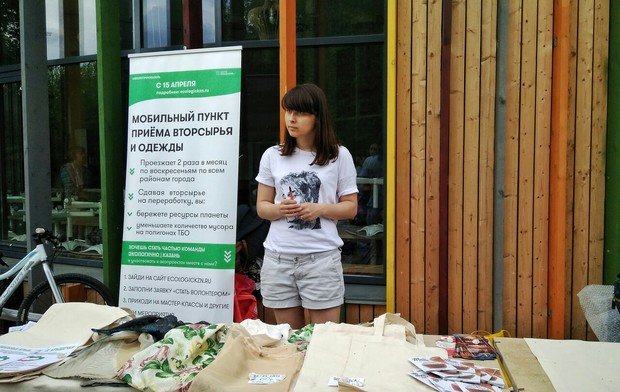
Chistaya Sreda turns into Stimul
Head of Chistaya Sreda Yan Naumov told Realnoe Vremya that the company's pavilions are now really closed, they do not collect recyclable materials from the population. But it's too early to bury the project. Interruptions in work are temporary and they are connected with the reorganization of the company.
Chistaya Sreda, the director and founder of which is Zarina Naumova, is closing, and the brand is transferred to Stimul territorial production complex PLC. According to Rusprofil, Stimul was established on 20 December 2017, its director is Denis Gorbachev, who is also the director of Stenia PLC, engaged in waste management, and the construction of Neostroy PLC. The founders of Stimul are Yulia Mamedova and Irina Chernova.
Chistaya Sreda PLC was established in 2015. In Kazan, they established seven collection points and were actually the first who began to buy recycled materials from the population at retail. According to the financial statements, the company's revenue for 2 years increased from 4,3 million to 6,6 million rubles. But the profit fell from 56,000 rubles to minus 1,5 million. According to Rusprofil, in 2016 the company repaid the debt of 5,2 million rubles.
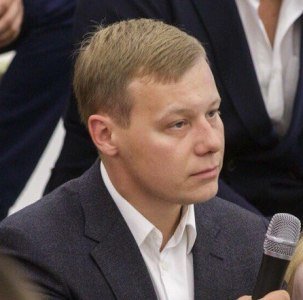 ''We thought that investments would quickly return, we would quickly make profit… Now we are changing, we take into account all pluses and minuses,'' Yan Naumov said.
''We thought that investments would quickly return, we would quickly make profit… Now we are changing, we take into account all pluses and minuses,'' Yan Naumov said.
''The project lags behind because of problems with registration of land plots''
Collection and disposal of recyclables, despite the fact that the Russian government declared as a priority activity, are supported only on paper.
''We have the Government Resolution No. 385, according to which the collection points of recyclables are placed without auctions and without rent. There are land plots, and companies are doing a good thing, they want to take this land, but they are reluctant to give it to anyone for free. The project lags behind because of problems with registration of land plots. To reach full capacity, it is necessary to adjust this moment. We have many cities wanting to take the franchise, but on the ground everything depends on land allocation,'' says Naumov.
The second problem is recycling of collected waste. Only 60% of collected waste is recycled in Tatarstan. Waste paper, for example, Naumov was going to sell to the Naberezhnye Chelny cardboard and paper mill, but could not agree on the price.
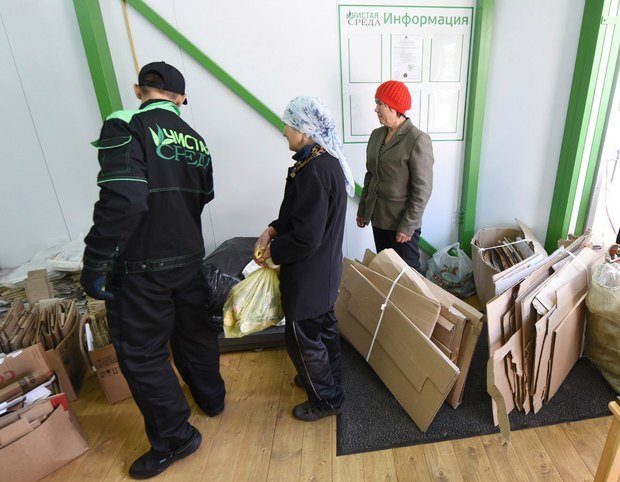
They will begin to collect glass and produce package for eggs
Having faced these difficulties, collectors of recyclables decided to master recycling as well. ''We will do what is important for Tatarstan so far, there are positions that are purchased outside the country — the package for eggs from waste paper, coasters for McDonald's.''
About 70% of collected recyclable materials in Tatarstan is waste paper. The rest — different types of plastic and metal. What is not collected from the population at the moment is glass.
''We are planning to collect glass from the population. We found contacts where to sell, agreed on the price, but I don't know whether we will be able to maintain volumes — about 1,000 tonnes a month is required to gain,'' said Yan Naumov.
When the reorganization of the company is completed, it is planned to install 18 pavilions. According to Naumov, the agreement with the Kazan authorities has been reached.
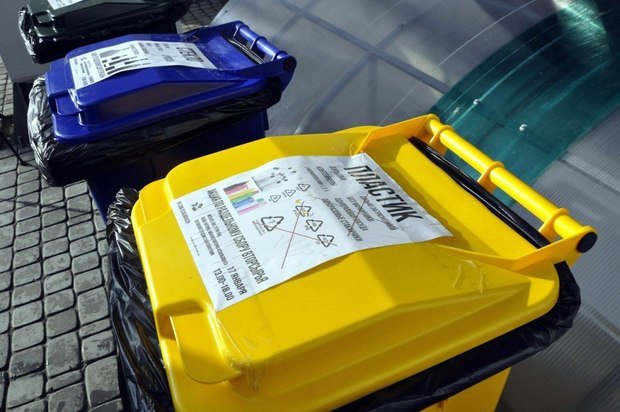
In addition to Chistaya Sreda, in Kazan there is another company engaged in collection of recyclable materials — Eco-Prioritet. It owns metal meshes for PET bottles. In Kazan, they installed about 1,300 of them, but this is not enough. Residents notice that the meshes are always full, waste is not taken out on time, in the end sorted garbage is often found in containers with MSW.
Earlier in an interview with Realnoe Vremya, Head of Eco-Prioritet Bogdan Saburov explained this by the difficulties with logistics, as the company headquarters in the settlement of Stolbischi. He also faced the fact that some management companies refuse to put on its territory containers for separate collection, despite the requests of residents who are ready for waste sorting.
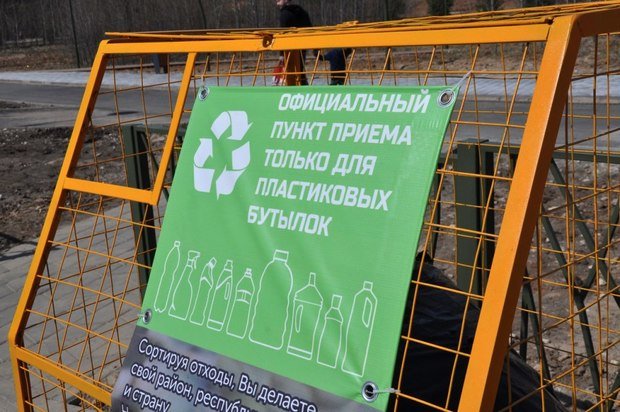
Although waste sorting is beneficial, first of all, to management companies that reduce the cost of export of solid waste. If residents do not throw big plastic containers in the tanks, they will be filled more slowly.
Despite the fact that the sorting of MSW in Kazan is in its infancy, both representatives of the ''garbage'' business believe that the competition is very high.
''In Kazan, there are many such companies. But we need to focus on service because not everyone will go to a rusty container, cleanliness is needed,'' says Yan Naumov. Nets for collecting plastics he believes to be loss-making business.
Saburov is sure that his company will take the leading position in the collection of recyclable materials, ''We are aiming at this, to take the leading position when the regional operator comes.''